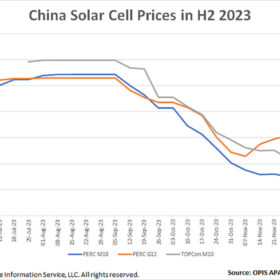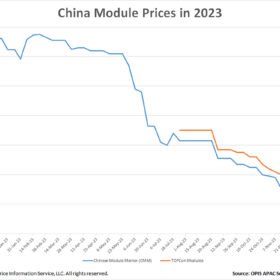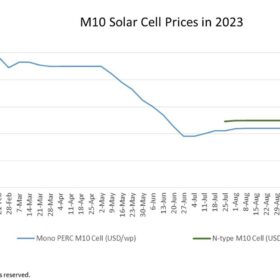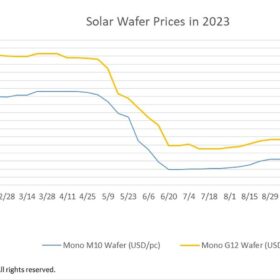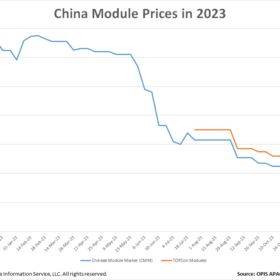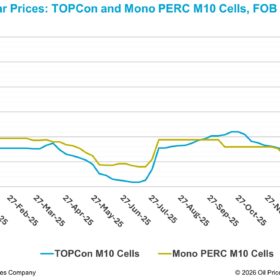Competition heats up
Oversupply is hitting some solar manufacturers hard but grid constraints and labor shortages are unlikely to hold the solar industry back in 2024.
China’s monocrystalline PERC cell prices extend losses while TOPCon cells hold steady
In a new weekly update for pv magazine, OPIS, a Dow Jones company, provides a quick look at the main price trends in the global PV industry.
Implementing robust O&M practices in the solar industry
Ensuring the reliable performance of solar PV systems demands a meticulous approach to essential solar operations and maintenance (O&M) practices. This encompasses not only the solar PV panels but also batteries, charge controllers, inverters, and all associated wiring and connections.
China module prices slide to new record low, manufacturers cut production
In a new weekly update for pv magazine, OPIS, a Dow Jones company, provides a quick look at the main price trends in the global PV industry.
Wires and cables in the solar industry
The solar industry growth has accelerated the demand for wires and cables in India. Since solar cables are key in transmitting power from the PV panels to the system, it is essential to invest in the best-suited type of solar cable that meets stability and safety norms.
M10 solar cell prices dive to new record low
In a new weekly update for pv magazine, OPIS, a Dow Jones company, provides a quick look at the main price trends in the global PV industry.
Fostering solar adoption requires a holistic approach
While the benefits of solar adoption are evident, challenges persist. The irregularity of solar power and the lack of efficient storage technologies remain primary concerns. The upfront costs of solar installations, though decreasing, remain a barrier for many. Complex regulations and bureaucratic hurdles often deter individuals and businesses from embracing solar energy. Addressing these challenges demands a concentrated effort.
Solar wafer prices marginally rise, supported by currency exchange rate
In a new weekly update for pv magazine, OPIS, a Dow Jones company, provides a quick look at the main price trends in the global PV industry.
With China PV modules reaching record low prices, is there a chance for local PV manufacturing elsewhere?
From the International Solar Energy Society’s perspective, and the vision of a world with 100% renewable energy for everyone used wisely and efficiently, PV module production should not become an oligopoly and should not be concentrated in one corner of the world.
China module prices hit record lows, operating rates estimated around 60%
In a new weekly update for pv magazine, OPIS, a Dow Jones company, provides a quick look at the main price trends in the global PV industry.

